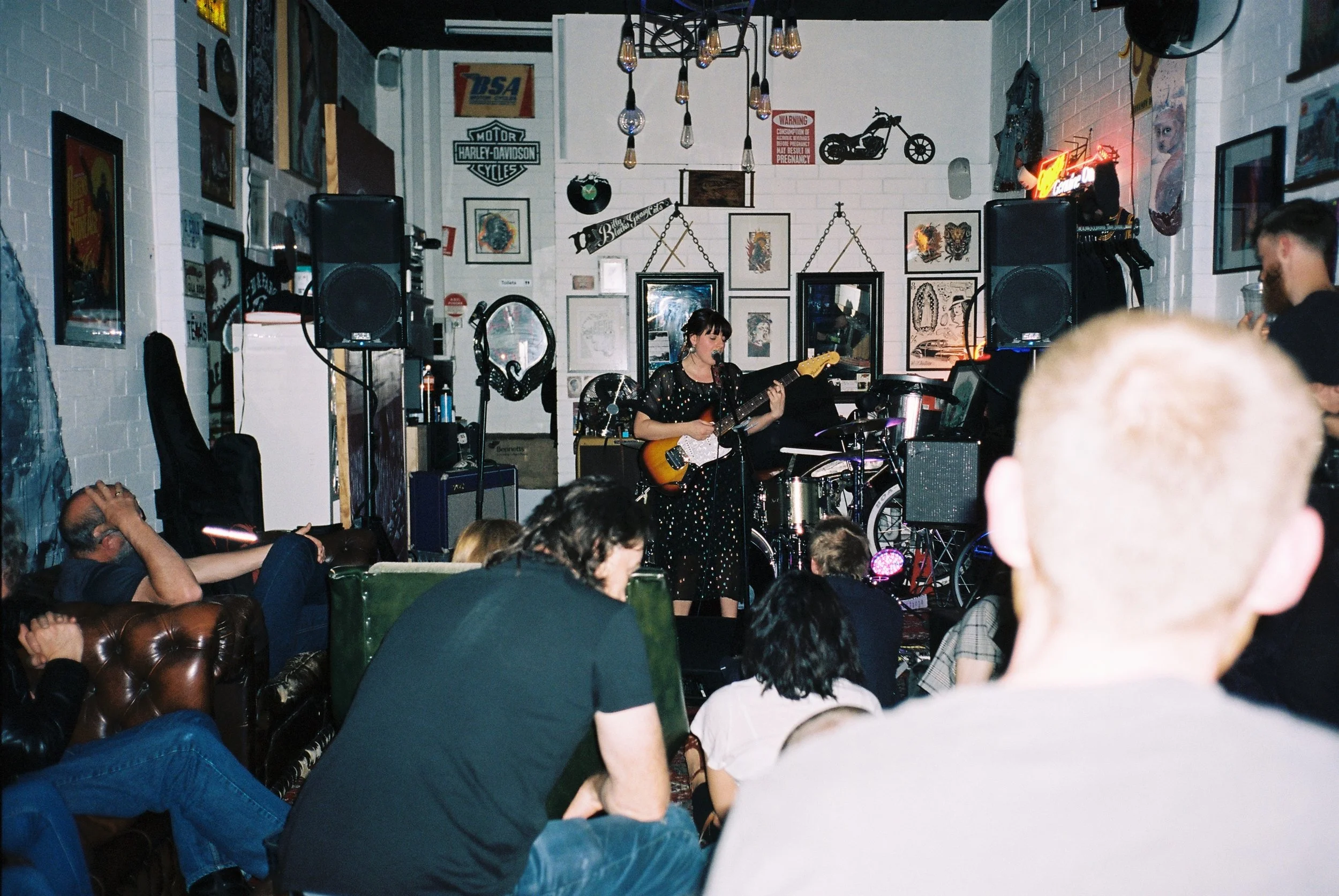REVIEW: Bloomhouse's "Homegrown" is an innovative celebration of classical music
When we hear the words “classical music,” an orchestra, a conductor, or perhaps an opera singer performing in Italian, German, or French often springs to mind. This image is typically set in a grand concert hall and might include the works of Mozart or Beethoven. Bloomhouse instead challenged this often stuffy stereotype in “Homegrown”, a celebration of Australian musicians, poets and composers. To my surprise, the concert was held at the iconic Claremont Showgrounds, a venue more commonly associated with agriculture and annual fairs bustling with parents and children. This time, it was still and quiet, with a single unassuming pavilion tucked away for concertgoers. The setting was modest but charming: household lamps provided warm ambient lighting, and decorations included a vase of lemons and gum leaf branches. After some pre-show poetry by Mia Read-Jones, for 70 minutes, this uniquely Australian classical concert offered me a level of catharsis that rivalled my monthly therapy sessions.
Soprano Daniella Sicari and pianist Tonya Lemoh set the tone of the evening with a West Australian premiere of two works from Pierre Flasse’s Lemon Tree song cycle, or “Australian Lieder”, with poetry by Australian journalist Rod Moran. “Moving Home” explored how the Australian accent affects compositional choices, a fascinating insight into composing for voice and language offering a fresh take on Australian identity within classical repertoire. The culmination of this collaborative experiment resulted in a charming yet haunting performance exploring themes of moving home, a sentiment that for many Australians is no doubt hitting hard at the moment. Like fate, the sound of a train whirring in the distance that closed the piece while not intended, felt quite symbolic of the poetry and music of what I’d just heard.
The second piece of this song cycle “Lemon Tree” offered in contrast a moment to pause and reflect on the beautiful things in life, like a lemon tree in a garden. Flasse’s disjointed yet captivating music, offered a moment of reprieve and distraction to appreciate the poem. This delightful collaboration between all three artists achieved its goal of promoting Australian identity, in an art form so traditionally European. Dare I say it, the Australian accent actually managed to sound beautiful.
Introducing James Pinneri, Bloomhouse’s Emerging Artist for 2024, supported by the Diane and Dr Ken Collins AO Award. Pinneri’s rendition of “His Own Country” by NSW composer Calvin Bowman and text by Hilaire Belloc was much like a gentle Australian folk song, singing of a return to home with nothing but the clothes on your back, needing nothing else in life.
A juxtaposition from the gentle lullaby of Bowman’s music, Pinneri’s next piece was a work by WA composer Emma Jayakumar, known for her recent work with the West Australian Opera. “The Tree and the Pool” with words by Brian Patten was a quirky and upbeat change from the gentle journey we’d been on so far. In Pinneri’s interpretation, ‘this is a quirky poem about how things change over time, we can’t do anything about it, and it is what it is.’ An elegant way to bring the Australian ethos of “she’ll be right” into today’s modern world of classical music.
A brief deviation from Australian Art Song introduced Niamh Dell, an oboeist and researcher specialising in complex and virtuosic new music, who in line with the theme had returned home to Australia. Gyfu a contemporary piece by Liza Lim explored the extended techniques and tonal range of the oboe, and is derived from an Anglo-Saxon rune X, which means gift. Raw and exposing, this performance challenged traditional expectations of classical music and celebrated the instrument’s versatility.
No celebration of Australian classical music would be complete without acknowledging Margaret Sutherland, a pioneer of musical modernism and a tireless promoter of music during World War II. Pianist Tonya Lemoh introduced us to Sutherland’s life and work before joining Sicari and Dell for a delightful performance of “The Gentle Waterbird”, a trio for voice, oboe, and piano set to the poetry of John Shaw Neilson.
Throughout this concert themes that were relatable to all of us continuously emerged, bringing a sense of comfort and connection to all. We were treated to the work “Closing Time”, with music by Ross Fiddes featuring the poetry of Karin De Novellis. This song cycle reflected Novellis’s everyday situations and feelings that she experienced, with her husband living with dementia. Written for Soprano Voice, Baritone Voice and Piano, the piece beautifully reflected an imagined scene of Novellis and her husband, expressing the various emotions and thoughts with such an affliction impacting their lives.
The concert concluded on a light and whimsical note with music by WA composer Chris Milbourn, featuring four audible vignettes. These included “The Little Duck”, “Artist Leave The World of Art”, and “The Other You” by Australian poet and illustrator Michael Leunig, as well as “The Ghost'“ by American poet Sara Teasdale.
Homegrown brought a new and innovative way to use classical music to “activate” the community around us, allowing us to access live music performances in a seamless, easy-breezy, no-fuss experience. Bloomhouse excelled in their mission to highlight our local Australian talent, and continues to quietly champion our Australian artists.






